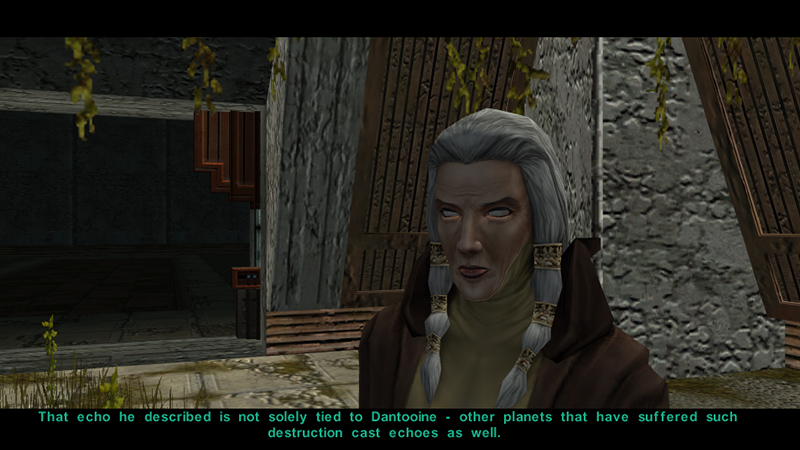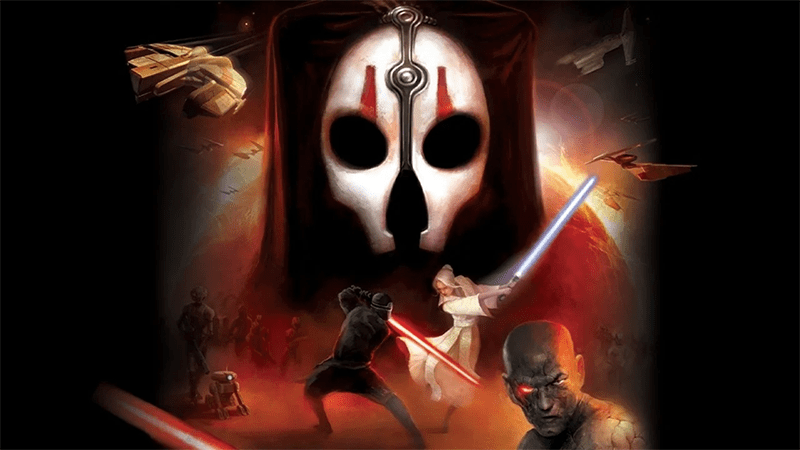With the recent Switch release of Star Wars: Knights of the Old Republic II: The Sith Lords, many fans are diving back into one of the most interesting chapters of Star Wars as a whole. In many ways, The Sith Lords is as much a critique of the ideas behind Star Wars as it is a celebration of them. In a time where fans are asking for originality and a new take on Star Wars beyond the Skywalker family, The Sith Lords is just that, as well as a scathing look at what forms the core of the series itself – the Force.
RELATED: Obi-Wan Kenobi Episode 5 Review: An Impressive Return to Form

This is primarily done through Kreia, one of the most fascinating and well-written characters in all of Star Wars. Though this elderly Force user begins as a mysterious companion character, she reveals herself to be a complex, manipulative, and driven fallen Jedi who despises the Force above all else. Kreia views the Force in the same way that a resentful former believer of religion might see their deity. She sees it as a universal power that controls everyone but doesn’t care for their lives or their free will.
This is in stark contrast to almost every other piece of Star Wars media, where the Force is portrayed as a mystical, all-powerful, and magical power that guides all life with a sort of benevolence. It doesn’t feel like the Force that was thoughtfully described by Yoda in Empire Strikes Back, but it’s a valid interpretation regardless. I remember being confused about this view as an eight-year-old upon the game’s release, but being completely captivated by it when replaying The Sith Lords when I was much older.

Because of the relationship that the player character, canonically a woman named Meetra Surik, has with the Force, Kreia is intrigued by them. Surik is seen as a “wound” in the Force, after her connection with the Force is severed following the grisly battle of Malachor V. While this is mostly a convenient way to have your character start with no Force abilities, it’s also a clever way of having the player look at the Force from the outside.
Throughout The Sith Lords, other Jedi are wary of Surik, as she does not necessarily follow the conventions of the Jedi that have been established both in-universe and in a meta sense. Though your control over Surik’s actions and choices obviously affect this perception, the idea of the player character being an outside observer of these different views of the Force makes for a fascinating narrative.
Writer Chris Avellone even stated that The Sith Lords would ideally teach fans that “it’s fine to question the [Star Wars] franchise” as Avellone himself felt confused by The Phantom Menace and Attack of the Clones’ interpretation of the Force. Given the two films’ shifting of the Force to something less mystical and more controlling than it was before, Avellone wanted to explore what the Force truly was in order to reconcile these two perspectives. This sort of examination of what a creator perceives to be flaws or inconsistencies in the franchise is hard to come by now and is refreshingly honest from a creative perspective.
This approach to deconstructing Star Wars draws a lot of comparisons to The Last Jedi, which famously critiqued Star Wars in its own way to divisive fan reception. However, The Sith Lords is more successful with its deconstruction. Rather than using established characters to take apart and analyze Star Wars as part of the mainline series, The Sith Lords opts to create an entirely new cast of characters and settings that poke holes in the assumed logic of the franchise. Without the baggage of decades-old characters like Luke and Leia, or the canon limitations of the Republic/Galactic Civil War era, the themes of Star Wars can be more thoroughly and freely explored from a new angle with less fan scrutiny. Despite the similar themes, The Sith Lords and The Last Jedi approach the subject in different manners, making each worthy of experiencing for those willing to look at the series more critically.
RELATED: Star Wars Explained: Why Does the Third Sister Hate Obi-Wan Kenobi?
Ultimately, it’s up to the audience to interpret what they think of the Force. Most pieces of Star Wars media aren’t especially interested in exploring the ramifications of the canon version of the Force, and that’s fair. Sometimes it’s nice to watch lightsaber battles or space dogfights, and Star Wars shouldn’t exclusively become this sort of deconstruction. Still, big franchises deserve to look inward every so often and The Sith Lords does that splendidly.










